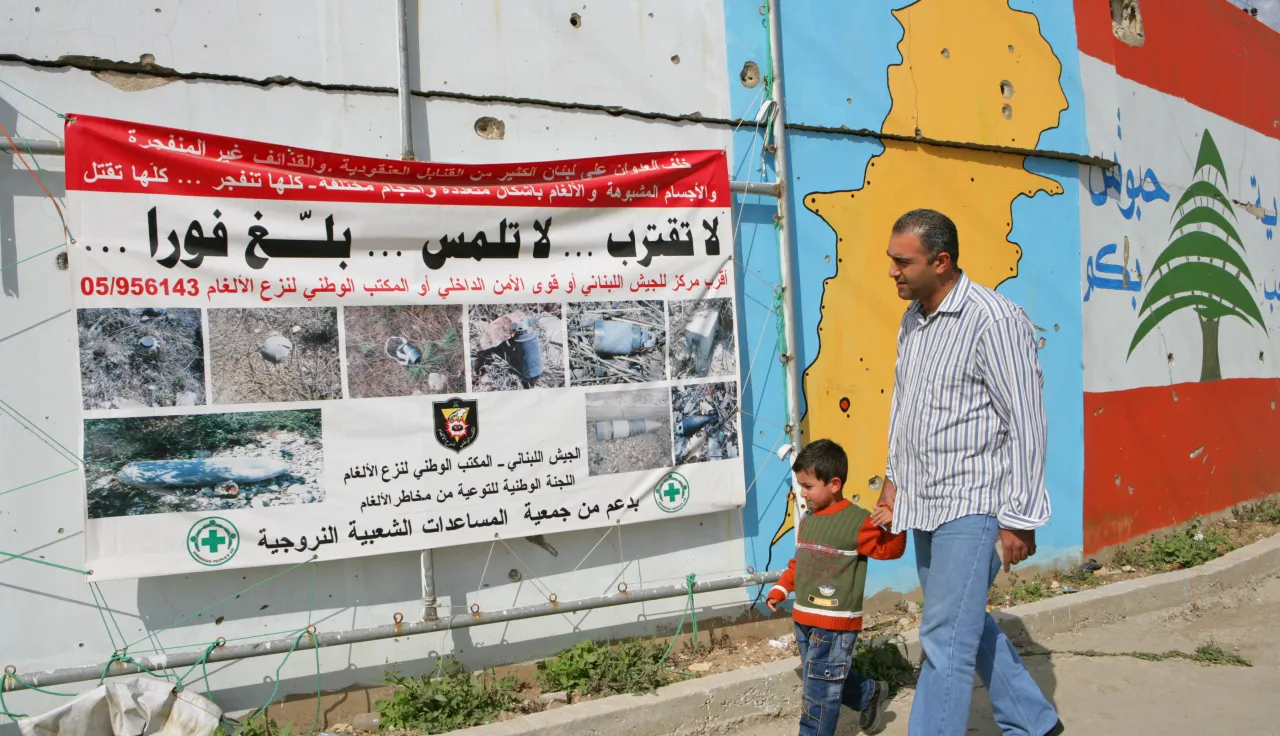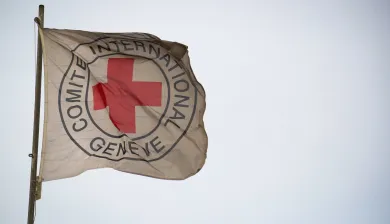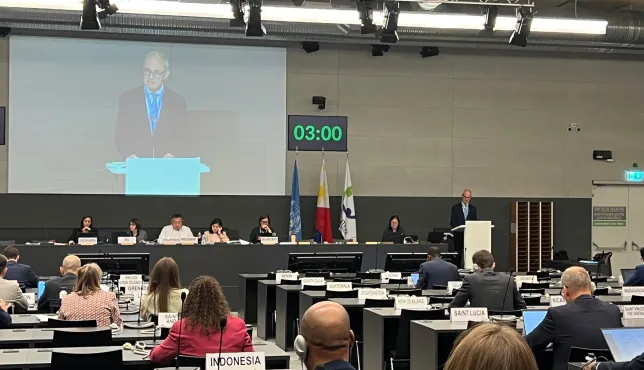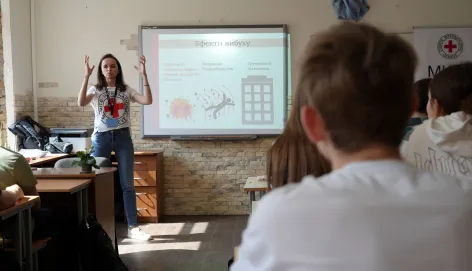Cluster munitions and international humanitarian law
The problems caused by cluster munitions are not new. In nearly every conflict where they have been used over the past 40 years, cluster munitions have taken a heavy toll on civilians – both during the fighting and after military operations have ended.
Civilian casualties during conflict often occur because cluster munitions scatter huge numbers of explosive submunitions over very large areas. Some models discharge hundreds of submunitions over more than 30,000 square metres of territory. Since these submunitions are generally free-falling, various factors – such as human error and wind – can cause them to strike well outside the intended target area.
In addition, large numbers of submunitions often fail to detonate as intended, contaminating large areas with deadly unexploded ordnance. Many thousands of civilians have been killed or injured by these devices. The presence of these weapons makes farming a dangerous activity and hinders the reconstruction and development of vital infrastructure such as roads, railways and power plants. Clearing unexploded submunitions after a conflict is often difficult and dangerous – some countries have been dealing with this problem for decades.
In 2008, states negotiated and adopted the Convention on Cluster Munitions, which provides a comprehensive framework for addressing the problems associated with these weapons. It prohibits the use, production, acquisition, stockpiling, retention and transfer of cluster munitions. It also requires states parties to destroy the cluster munitions in their stockpiles and commits them to clearing areas contaminated with unexploded submunitions or abandoned cluster munitions. Importantly, the Convention obliges states to provide for the medical care, rehabilitation, psychological support, and social and economic inclusion of cluster munition victims in areas under their jurisdiction or control. States parties in a position to do so must also provide assistance and cooperation to help other states implement their obligations under the Convention.







